
A Race Against Time: The Public Safety Crisis in Brazil
According to a recent national survey on crime and victimisation in Brazil, more than fifty per cent of respondents reported having been robbed at least once, while 85 per cent know at least one other person who has been victim of the same crime. Latinobarómetro data from 2023 shows that 59 per cent of Brazilian respondents are worried “all the time” about becoming a crime victim. Such alarming numbers are just the tip of the iceberg when it comes to crime and violence in the largest country in the Southern hemisphere. Results from the most recent National Transport Confederation (Conferederação Brasileira do Transporte, CNT) national poll conducted in mid-January 2024 clearly indicate public safety as the major challenge to be …
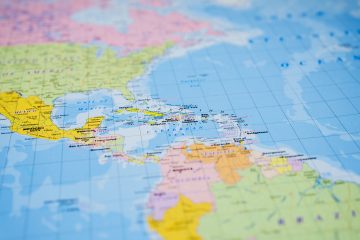
The Biden Administration Must Improve its Foreign Policy Toward Latin America
Historian Joseph S. Tulchin once described U.S.-Latin American relations as a “historical legacy of conflict.” Over the last two years, the Biden administration has neglected regional concerns in Latin America. With a new year ahead, the Biden administration must revaluate its relationship with the region with ample considerations of social geopolitical elements tinted with historic predispositions. Regional concerns cannot continue to be addressed from a preoccupied hardline position. As other nations outside the Western hemisphere strengthen their influence in Latin America, the time to disregard human dignity as imperative to current affairs must end. A U.S. Progressive Foreign Policy While the Biden administration has advocated for a foreign policy stipulated to adhere to international human rights norms, it has failed …
A Return to the Right for Mexico? Foucault’s Pendulum and Missed Political Opportunities
In June 2021, amidst the COVID-19 pandemic, Mexico will face what is bound to be one of the most complex mid-term elections the country has seen in the last two decades. At stake is control of 15 (out of 32) governorships, 30 state legislatures, 1,900 municipalities and a complete renewal of the Lower Chamber of Congress. The outcome will clearly be either a punishment or a reward for the leftist administration of Andrés Manuel López Obrador (AMLO) and the ballots cast this summer will undoubtedly make or break the second half of his presidency. The extent to which the COVID-shock has impacted individual political preferences in Mexico remains unclear. Looking at the most recent available data to conduct an exploratory …
When the technical is political: Colombia’s export of security expertise
In a farewell speech to Colombia’s armed forces last year just prior to leaving office, ex-president Juan Manuel Santos boasted: “Today we have the best armed forces in our history.” Proudly, he added: “We’re a global reference!” And indeed, it seems as though Colombia had opened a new chapter. Since the 2016 peace accords with the country’s largest guerrilla organisation, the FARC (Revolutionary Armed Forces of Colombia), the nation appears to be on an uphill climb. With the FARC at the negotiation table, the story goes, the country was finally able to look ahead and dedicate its resources to transition and reconstruction: the reintegration of former combatants, the redistribution of formerly occupied territories, and the recovery of an economy weakened by decades …
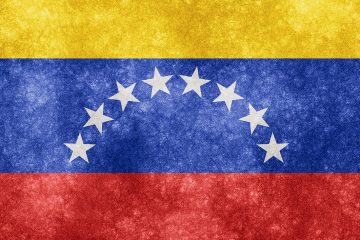
Will Venezuela transition to democracy this year?
On May 20th, Venezuelans are supposed to vote in a presidential election to decide over the fate of their crisis and conflict ridden country. Despite being nominally given the opportunity to choose, the way the Maduro government has set up the electoral process, committed fraud, repressed the opposition and systematically undermined the process of free and fair elections over the past years, all but guarantees authoritarian durability. This article addresses why a) a highly unpopular incumbent is likely to hold onto power, b) the opposition is justified in their decision to boycott the elections and c) how Venezuela might transition to democracy. Venezuela has transitioned from a weak democracy in 1998 to a failing dictatorship in 2018. Over the past …
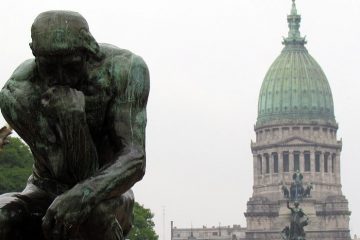
Argentina’s Midterm Elections: A Forecast
On Sunday, Argentina will hold highly significant midterm legislative elections in its 23 provinces as well as the federal capital of Buenos Aires. Cambiemos (Let’s Change), headed by the centre-right incumbent President Mauricio Macri, will look to expand its political mandate as the first non-Peronist government in 16 years. While seats will be up for grabs throughout the country, observers have placed most of their focus on the Senate race in Buenos Aires province, a predominantly working class region of Argentina that holds nearly 40 percent of the national electorate. Here, Macri’s current Minister of Education, Esteban Bullrich, is competing against former President Cristina Fernandez de Kirchner, who assumed office in 2007 as part of the Peronist ‘Front for Victory’ …
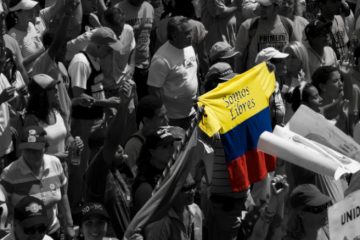
Reset, Rethink, Restart: The Opposition’s only way out in Venezuela
In early hours of Monday, October 17th, after the announcement of the results of the regional elections, the Venezuelan opposition decried foul play and electoral fraud. Such accusations of course are very hard to prove in any case, and even more so in today’s authoritarian Venezuela. Yet, what’s done is done. The regime announced to have won 18 governorships, while the opposition appears to have only won five. Even if the fraud accusations were true, the only certainty, as of today, is that – although 83% of Venezuelans rejected President Maduro’s government as of August 2017 – Venezuela’s political map is still dominated by Chavismo. This latest episode of contested elections adds to the already high levels of political conflict …
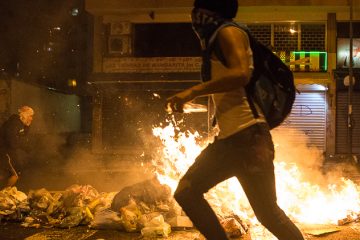
Venezuela’s instability has far broader implications. Here’s what’s at stake
Venezuela seems locked in a downward political and economic spiral. But what happens in Venezuela has far broader implications for international security. “Here you must not speak badly about Chávez” — this was the message on banners at a Colombia-Venezuela border bridge I crossed recently on a research trip. It was just one of the signs of the exponential jump in authoritarianism in Venezuela, and the continued unravelling of the regime. Last Saturday, Chief Prosecutor Luisa Ortega, a critic of the government of President Nicolás Maduro, was dismissed. On Sunday, a military uprising left one dead and several injured, then other military dissidents used social media to call for other soldiers to disobey the president. By Tuesday, parliament was practically …









